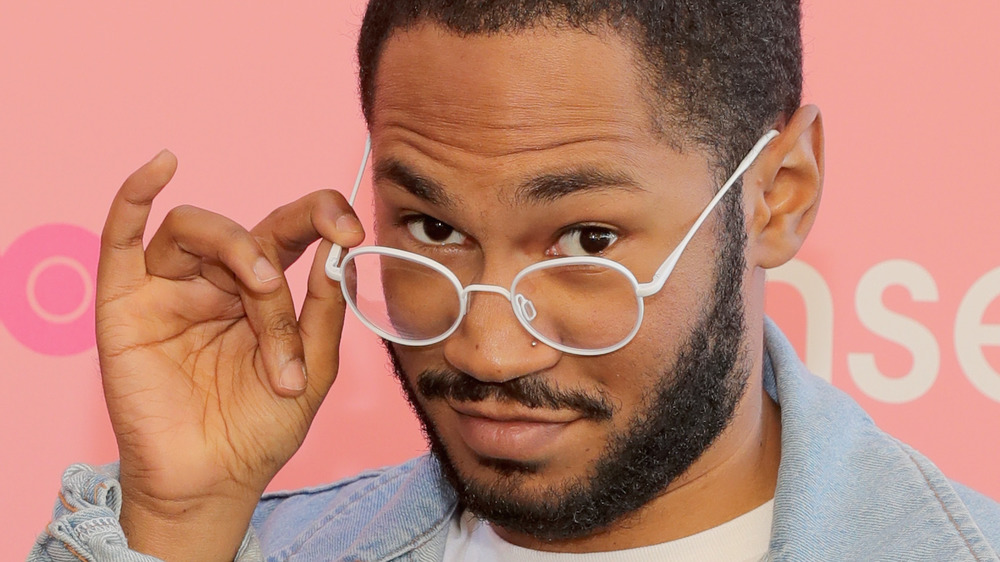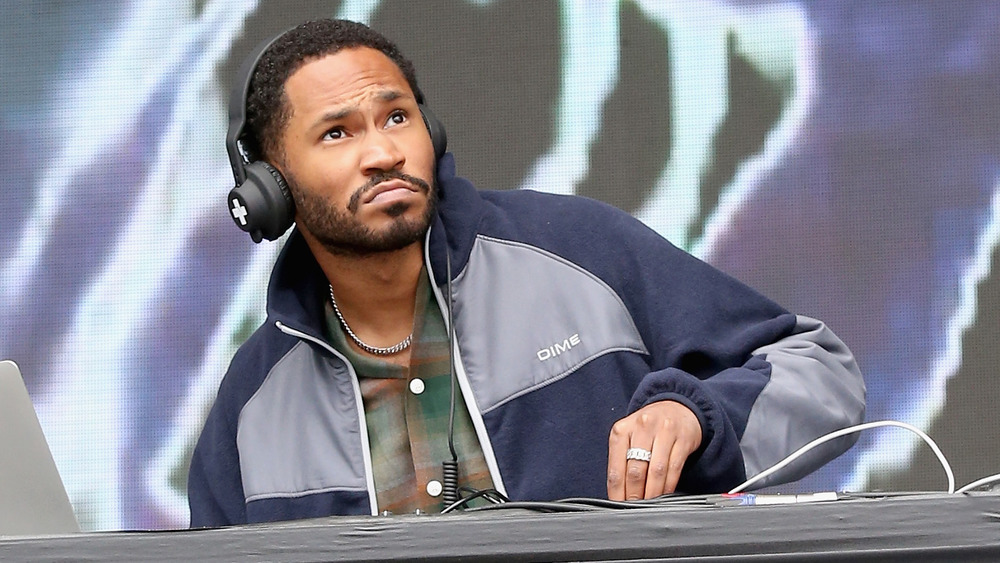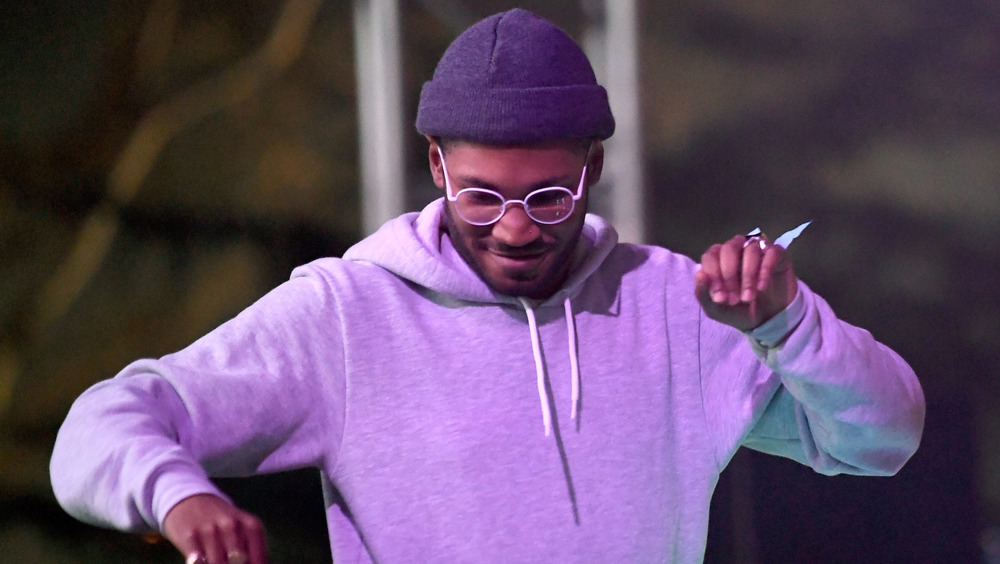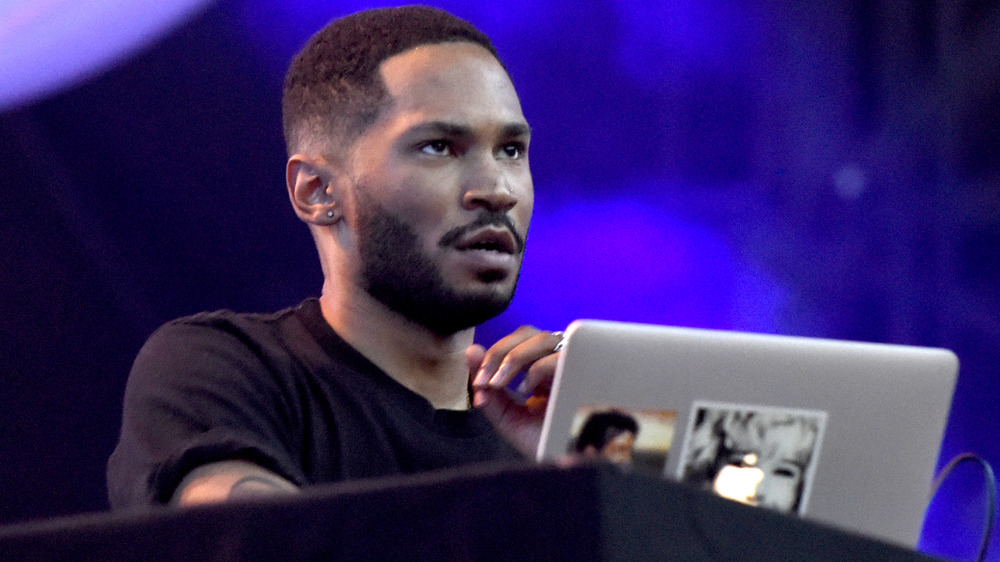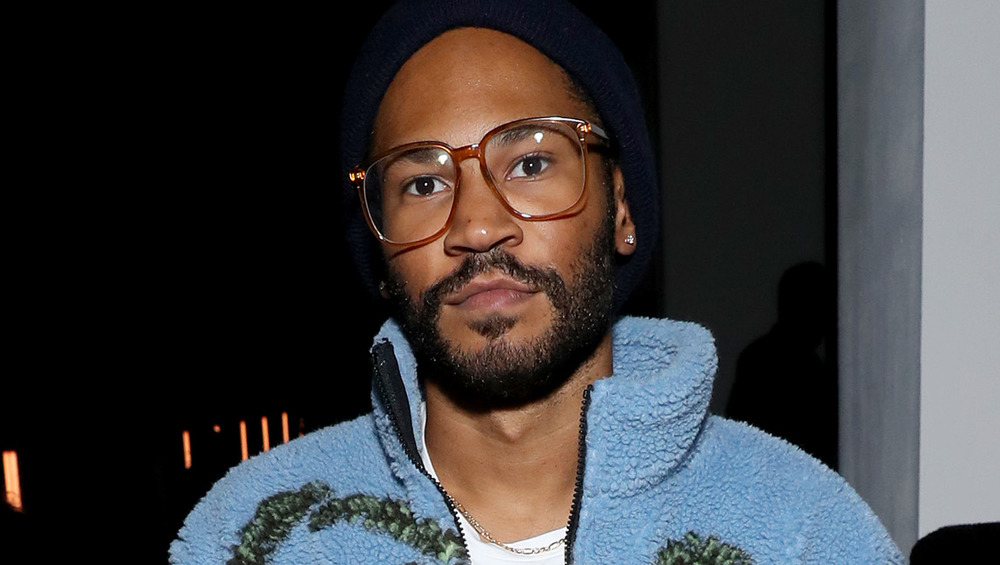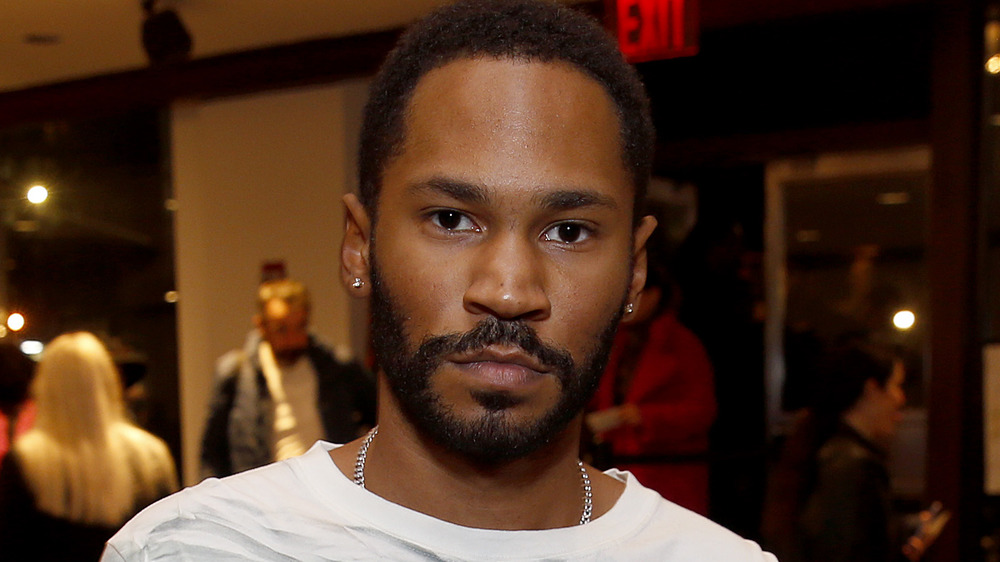The Untold Truth Of Kaytranada
If you don't know Kaytranada's name yet, you sure will soon. The DJ is nominated for Best New Artist at the 2021 Grammys and he could easily take home the gold on March. 14, 2021. Additionally, Kaytranada's sophomore album Bubba, which was released in 2019, is nominated for two other Grammys including Best Dance/Electronica Album.
Since he started producing music as a teenager, Kaytranada has been on a lifelong journey to success. His one-of-a-kind style, which "glide[s] fluidly between four-to-the-floor house beats, hip-hop sample-flipping, and P-Funk style 808 bass lines," as described by Vulture, has garnered attention from the biggest names in the business, including Pharrell Williams, Mary J. Blige, Alicia Keys, Anderson Paak, and Kendrick Lamar.
However, Kaytranada still feels like a newbie at heart. "I'm Kaytranada, all the way from Montreal, Canada — been making beats since I was young. And now here I am, [one of the] Best New Artists for the Grammys," he said on an episode of the Switched on Pop podcast. "It's really crazy and exciting." Keep scrolling to learn more details about Kaytranada.
Kaytranada's upbringing wasn't all that easy
Before Kaytranada's love for music earned him recognition on SoundCloud, and later, among the likes of the industry's most elite artists, he struggled to express his creativity on account of his strict upbringing.
Born Louis Celestin in Port-au-Prince, Haiti, the DJ's family moved to Montreal, Canada just one year after his birth, he told The Guardian while discussing his debut album 99.9% in 2016. As a child growing up in the north, his father worked as a taxi driver and estate agent and his mom was involved in the healthcare industry. However, Kaytranada noted that they struggled to make ends meet and their parenting style was rather authoritative, calling it "another level of strict," to Fader magazine.
Although the couple divorced when Kaytranada was 14 years old, their strict parenting remained, but it was not enough to stop the artist's imagination from wondering. "I was really not into school. Everything was distracting to me. I would have a beat in my head or a song. I was always not paying attention, just daydreaming," he told the outlet. "I didn't finish high school. I tried to as an adult, but with all this touring I had to quit."
Kaytranada struggled to come to terms with his sexuality
Going off of Kaytranada's upbringing, the artist revealed that his sexuality might have had a lot to do with his depression throughout his adolescence into adulthood. While coming out to Fader magazine in 2016, he recalled a fight with his family that left him in tears. "I knew what was wrong," he said. "Something inside me was like, 'Wake the f**k up.' I felt like there were two people inside me. I was trying to be somebody I was not, and I was frustrated that people didn't know who I was."
Kaytranada feared coming out to his family because, "We're Haitians, and Haitians don't appreciate gay people at all. I thought maybe it was a phase," he told the outlet. However, he came out his mother prior to his interview, although he had yet to come out to his father at the time. Revealing his mother was supportive, he said, "I feel better than I ever have, you know?" about finally speaking his truth. "I've been sad my whole life, but f**k that. I know I have good things ahead. I don't know honestly if I'm fully, 100 percent happy, but I'm starting to get there."
Kaytranada felt 'pressure' as a gay man in entertainment
Once Kaytranada finally came out, he struggled to find his place in the gay community, especially since he did not understand the power of his platform to help gay representation in the music industry. "Why not just be gay and that's all?" Kaytranada asked while speaking with GQ in February 2020. "You happen to be attracted to men and that's it. The culture around it took me a while to understand. When I came out, I didn't really have gay friends and stuff. I had to learn a lot."
Explaining that "there was this pressure" to be a model advocate for gay rights, he said, "I had to learn a lot about gay history and, you know, [gayness within] the [B]lack community — especially with me having a white boyfriend. There's a lot of crazy things that comes with it. I had to get away from social media, get away from a lot of things, the Internet."
Despite feeling pressure from his community, he said he's going to keep doing his own thing. "I'm just gay and I love hip-hop. I love Mobb Deep, and I'm happy to be gay," he said before joking, "I hear their homophobic raps and I'm like, "Yeah, it's sad, but the beat is crazy."
Kaytranada thanks social media for his success
After being discovered on SoundCloud, Kaytranada recognizes that he has social media to thank for his success. "Social media really opened a door for a lot of artists like me," he told Paper magazine in June 2020. "Without social media it would have been really dead. Especially for me, coming from Montreal, it would have been almost impossible if I hadn't had the money to travel, or to go somewhere to make myself known. I did it exactly right where I grew up, in the suburbs, you know? And the whole world heard it and I was still at home."
He also credits social media for enabling others to defy stereotypes and helping to represent other gay men like himself. "Before social media we only had this one gay image, and I didn't see myself in that," he said when explaining what Pride means to him. "It's so important just to show someone like me can love themselves, and it's all good. That's how I feel about it."
Kaytranada is actually pretty shy
Although Kaytranada has plenty to boast about, the artist admitted he's a pretty shy guy and struggles to express himself, which is pretty ironic considering his first viral hit was a remix to Janet Jackson's "If."
"I have difficulties trying to find the right words to say most of the time. In the same way, I want to translate that with my music, but I make beats so I'm like, 'How am I going to do that?'" he told Paper magazine in June 2020. However, he was able to dish about his sophomore album in greater detail, unlike when he spoke to The Guardian about his debut in 2016. "I can't say whether or not it's my best work," he told the outlet. "Maybe people will see it in another way."
Sounding more sure of himself this time around, he told Paper, "When I was making my last album, I was really inspired by early house DJs, because now when house DJs actually come up, it's really those white DJs and people don't think about Black DJs in the sense that [they] play House music. While I was making this album, I was like, This is the type of sound I went in to make: dance music, but mainly for Black people and if everybody else likes it, come through."
Sounds like progress to us!

